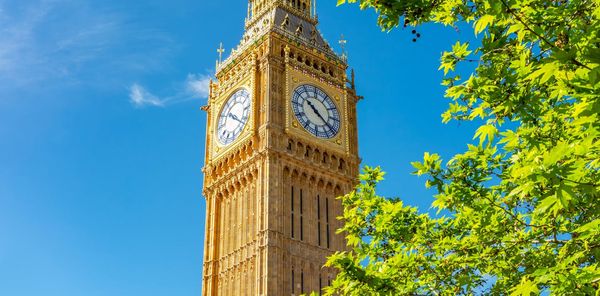
Dear Conservative colleagues,
After the 1997 general election it took the Tory party 13 years and five opposition leaders to get back into government. I began the 1997 parliament as private secretary to William Hague when he became leader, and did a succession of frontbench roles under him and his successors. I still remember the shock of losing so many colleagues to Tony Blair’s landslide and the grinding frustration of the years that followed. What you decide and what you say now will help determine whether we have to wait that long again.
Opposition is grim. I remember that first day in the chamber after the 1997 defeat – sitting on the opposition benches for the first time, the huge number of Labour MPs and the wall of noise they made at prime minister’s questions, the shock of the sparsely populated lobby when we voted.
Business will, for the most part, keep its head firmly below the parapet. (I remember Peter Lilley’s frustration when, as shadow chancellor, he couldn’t persuade companies to speak up against Gordon Brown’s first budget tax raid on pension funds.) Fairweather friends will be off. Money for party research and media staff will be tight. You may win the argument in a debate, but still be overwhelmingly defeated in the lobbies.
In 1997, with 165 MPs it was very hard to mount an effective opposition. With 121 MPs, your task will be tougher still. Shadow ministers will have to work hard to keep on top of developments in their brief. They will need the knowledge, energy and drive to scrutinise and challenge Labour. They, and above all the leader, will need to command the dispatch box and rebuild relationships with industry and the professions and communities around the country who showed on 4 July that they had lost faith in our party.
It’s not for me to tell you whom to support as our next leader. But, in the hope of shortening your time on those opposition benches, let me offer a few thoughts.
First, there will be precious few occasions when the media or the public will pay attention to what you say. Don’t waste them refighting the 2024 campaign. However many times you press playback, our side still lost. Within six months of the 1997 debacle, the executive of the 1922 Committee trooped in to see Hague. It had a clear message: stop saying we understood why voters had rejected us or that the party needed to do things differently. Instead, speak out more loudly in defence of our record in office and explain firmly to the electorate that they had made a terrible mistake in electing Blair. It was not the committee’s finest hour.
In 2029, this country and the world will look very different from today. New employee rights will have been in place for four or five years. We will have moved closer to net zero. Thirteen years after the referendum (by when only people over 30 will have been old enough to have voted leave or remain), Britain’s relationship with the EU will have evolved. We will know whether or not Labour’s policies on growth, housing, health and immigration have worked. The US president-elect will be neither Donald Trump nor Joe Biden. There will be a different president of France. Voters then will want to know what the parties are offering for the 2030s.
Opposition gives Conservatives time to reflect and think, a luxury rarely available in government. We need to work out how to rebuild public trust and recover support among groups of voters who have abandoned our party. Conservative support has haemorrhaged, not just among school and college leavers, but people in their 20s, 30s and 40s with family and career responsibilities.
Polling for More in Common indicates the number of voters that attribute the 4 July loss to us being too rightwing is the same as those who deemed us too leftwing. An ideological swerve won’t get us back into government. What is more important is to rebuild our shattered reputation for competence and unity of purpose.
Our opposition to Labour needs to be credible. We should pick our fights and be willing to back it if it does the right thing – a tactic also guaranteed to enrage its own left wing.
We shouldn’t bind ourselves to firm policy commitments for a manifesto that won’t be written for at least four years. But we should think and speak about a Conservative approach to the issues that matter. How would we deal with the pressure that an ageing society inevitably places on demand for health, social care and pensions? How can market mechanisms be used to deliver good environmental outcomes? What immigration policy will work best in a world where our public services rely on recruits from abroad, and where civil war, the climate crisis and lack of economic opportunity give people in Africa and Asia a powerful incentive to move to Europe, including Britain?
Conservative MPs and centre-right thinktanks need to get on with this work. Our new party leader will need to be able to inspire and motivate others; have the diplomatic skill to unite the party; and the resilience to cope with the inevitable disappointments and setbacks. He or she will have to restore public trust that the Conservative party can once again be a competent, credible party of government.
Good luck with your choice.
Yours ever,
David
David Lidington was the Conservative MP for Aylesbury from 1992 to 2019










